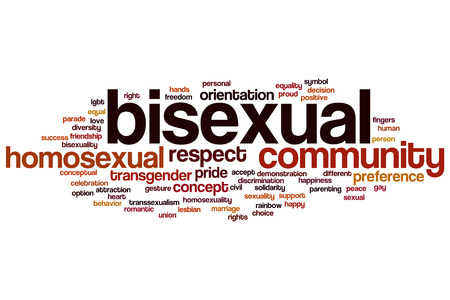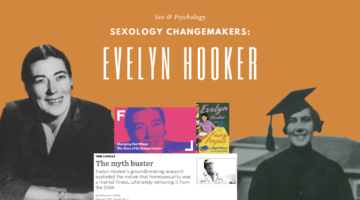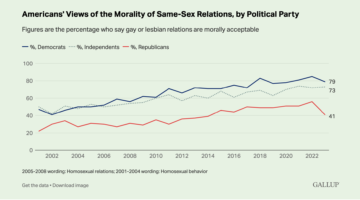Sexual Orientation and Mental Health: Are Bisexuals at Greater Risk for Depression and Anxiety?
November 15, 2017 by Justin Lehmiller

Psychologists have long known that gays and lesbians have an elevated risk of depression and anxiety compared to heterosexual individuals. This health disparity is thought to be due in large part to the chronic, high levels of stress faced by sexual minorities due to their stigmatized social status.
But what about bisexual persons? Do they face similar mental health disparities? Are they perhaps even worse off due to the fact that bisexuals often face prejudice from both the gay and heterosexual communities? Unfortunately, most research on the mental health of sexual minorities has lumped bisexuals together with gays and lesbians, making it difficult to determine exactly how bisexual individuals stack up relative to other groups. However, a new review paper published in the Journal of Sex Research offers some insight.
In this paper, researchers searched for studies published over the last two decades in which mental health data were provided separately for bisexuals and other sexual identity groups. It’s worth noting that of all the studies they identified, 75% were immediately excluded because they did not report bisexual-specific data (if you’ve ever heard the term “bi-erasure,” well, this is what it’s referring to). Ultimately, they were left with 52 studies reporting relevant data, which were then used in a meta-analysis. So what did they find?
Across a variety of measures and scales (including current symptom reports, diagnoses in the last year, and diagnoses in one’s entire lifetime), bisexuals exhibited higher levels of both depression and anxiety compared to heterosexual persons. Likewise, when compared to gays and lesbians, bisexuals’ rates of depression and anxiety were similar; however, they were even higher in some—but not all—cases.
Interestingly, the disparities faced by bisexuals were even larger for women than they were for men. The disparities also tended to be larger in studies that used identity-based measures of bisexuality (i.e., what is your sexual identity label?), as opposed to attraction-based measures (i.e., to whom are you sexually attracted?). In other words, identifying as bisexual was linked to more mental health disparities than simply having bisexual attractions.
So what accounts for bisexuals’ elevated rates of depression and anxiety? The authors of this meta-analysis offer at least three possible explanations. First, frequent experiences with prejudice and discrimination are thought to play a role, just as they contribute to the mental health disparities faced by gays and lesbians. Second, they argue that the invisibility of bisexuality in society and in the media, as well as the erasure of bisexuality that often occurs in the law and in research might also play a role. Finally, they claim that a lack of bisexual-affirmative support (from both the local community as well as from mental health providers) exacerbates the effects of prejudice against bisexuals.
To be clear, the findings from this meta-analysis do not suggest that all or even most bisexuals suffer from mental health problems; rather what they tell us is simply that the relative risk of depression and anxiety is higher for bisexuals.
In sum, this meta-analysis offers us a better understanding of the scope of the mental health disparities facing bisexual persons—an understanding that will hopefully spur more research into both the causes and resolution of them.
Want to learn more about Sex and Psychology ? Click here for previous articles or follow the blog on Facebook (facebook.com/psychologyofsex), Twitter (@JustinLehmiller), or Reddit (reddit.com/r/psychologyofsex) to receive updates.
To learn more about this research, see: Lori E. Ross, Travis Salway, Lesley A. Tarasoff, Jenna M. MacKay, Blake W. Hawkins & Charles P. Fehr (2017). Prevalence of Depression and Anxiety Among Bisexual People Compared to Gay, Lesbian, and Heterosexual Individuals: A Systematic Review and Meta-Analysis. The Journal of Sex Research. doi: 10.1080/00224499.2017.1387755
Image Source: 123RF/lculig
You Might Also Like:

Dr. Justin Lehmiller
Founder & Owner of Sex and PsychologyDr. Justin Lehmiller is a social psychologist and Research Fellow at The Kinsey Institute. He runs the Sex and Psychology blog and podcast and is author of the popular book Tell Me What You Want. Dr. Lehmiller is an award-winning educator, and a prolific researcher who has published more than 50 academic works.
Read full bio >

